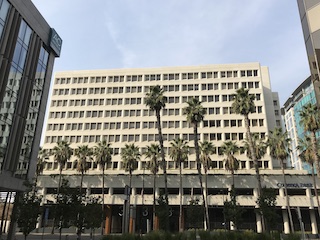In the first case, in 2017, Mr. Petri pleaded no contest to grand theft and admitted that he served one prior prison term within the last five years, which increased his sentence by one year under Penal Code § 667.5(b). In his second case, Mr. Petri pleaded no contest to embezzlement and also admitted that he had served a prior prison term within five years.
The court sentenced Petri to four years in county jail and, in each case, ordered Mr. Petri to pay a restitution fine of $300, a court operations assessment of $30 and a court facilities assessment of $40, or $740 in total.
A year later,
Duenas was decided and Petri appealed, alleging the trial court judge in Santa Clara County violated his federal and state constitutional rights by imposing any fines without first conducting an ability-to-pay hearing. He also appealed the imposition of a one-year sentencing enhancement under 667.5(b) due to the passage of Senate Bill (SB) 136.
The Sixth Appellate District agreed with
Petri that the one-year enhancement under 667.5(b) was improper under SB 136, which became law on January 1, 2020.
However, the Sixth Appellate District did not reduce any of the fines imposed. It evaluated the trial court record and found that the trial court judge did an ability-to-pay hearing for Petri and did strike the booking fee and other fees “based on an inability to pay.”
Looking at
Duenas, however, the Sixth Appellate District commented that the fees which were imposed were proper. The court pointed out that
Duenas rested on “two distinct strands” of precedent to find due process required an ability-to-pay hearing. The first strand requires a “right to access to the court” evaluation and if the imposition of a fee acts to bar defendant’s right to access the court, it would be improper if defendant was unable to pay it. Second, if failure to pay a fine results in incarceration based on indigence or inability to pay, then imposition of that fee is also improper. Here, in
Petri, neither of these principles were violated by the trial court.
Therefore, the Sixth Appellate District affirmed the trial court’s sentence and denied the appeal by Mr. Petri because it found that Petri did have the ability to pay such fines.
The citation for the Sixth Appellate District Court ruling discussed above is People v. Jeffrey Lee Petri (6th App. Dist., 2020) 45 Cal. App. 5th 82, 258 Cal. Rptr. 3d 466.
For more information about issues, please click on the following articles:
 Court of Appeal Sixth Appellate District San Jose
Court of Appeal Sixth Appellate District San Jose